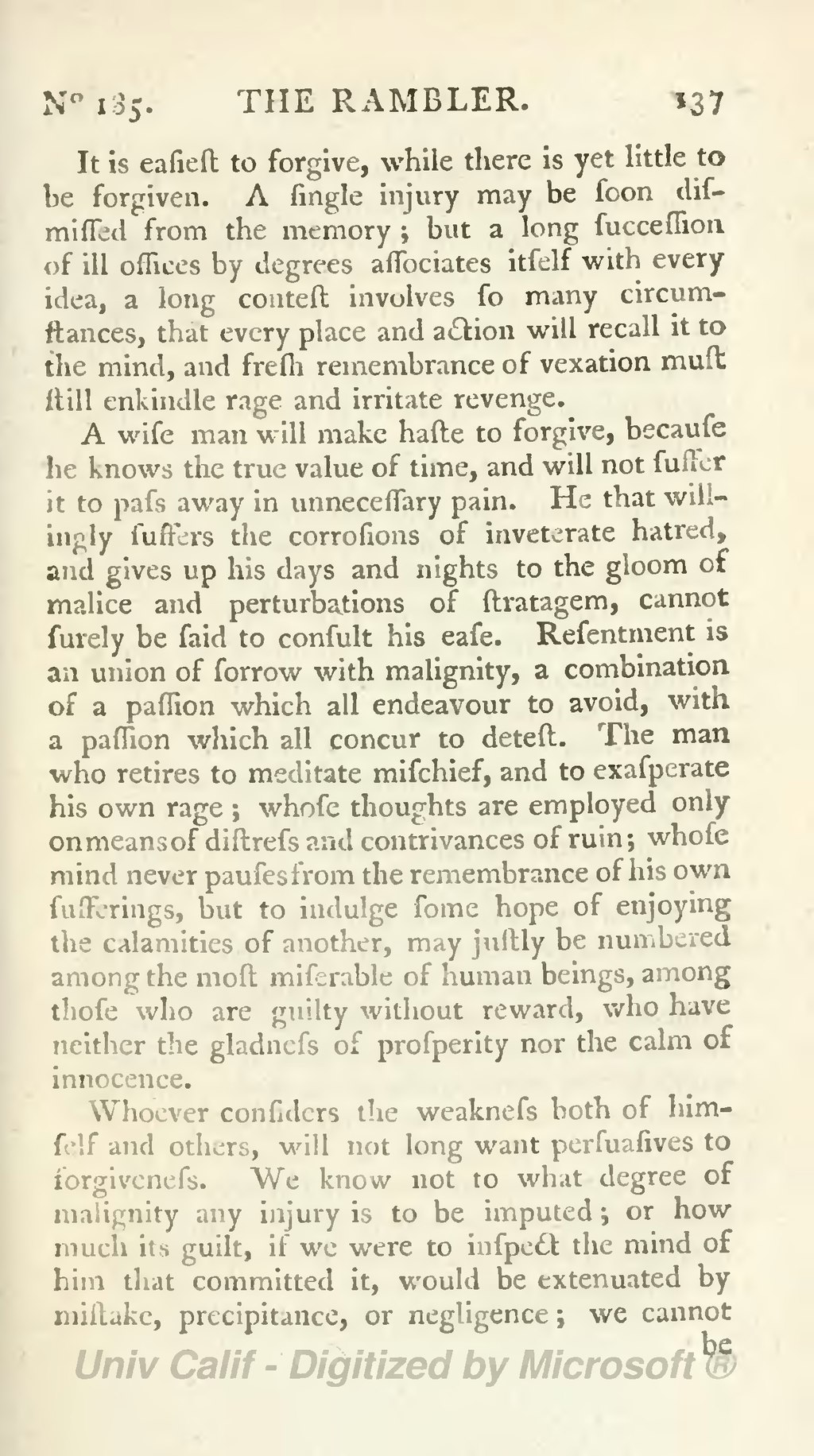It is easiest to forgive, while there is yet little to be forgiven. A single injury may be soon dismissed from the memory; but a long succession of ill offices by degrees associates itself with every idea; a long contest involves so many circumstances, that every place and action will recall it to the mind, and fresh remembrance of vexation must still enkindle rage, and irritate revenge.
A wise man will make haste to forgive, because he knows the true value of time, and will not suffer it to pass away in unnecessary pain. He that willingly suffers the corrosions of inveterate hatred, and gives up his days and nights to the gloom of malice, and perturbations of stratagem, cannot surely be said to consult his ease. Resentment is an union of sorrow with malignity, a combination of a passion which all endeavour to avoid, with a passion which all concur to detest. The man who retires to meditate mischief, and to exasperate his own rage; whose thoughts are employed only on means of distress and contrivances of ruin; whose mind never pauses from the remembrance of his own sufferings, but to indulge some hope of enjoying the calamities of another, may justly be numbered among the most miserable of human beings, among those who are guilty without reward, who have neither the gladness of prosperity nor the calm of innocence.
Whoever considers the weakness both of himself and others, will not long want persuasives to forgiveness. We know not to what degree of malignity any injury is to be imputed; or how much its guilt, if we were to inspect the mind of him that committed it, would be extenuated by mistake, precipitance, or negligence; we cannot
